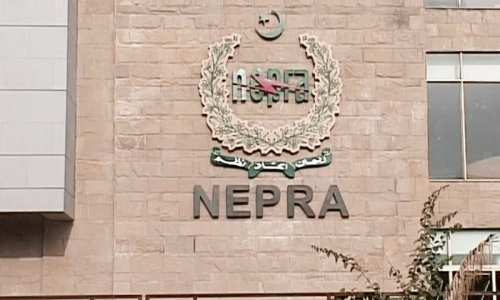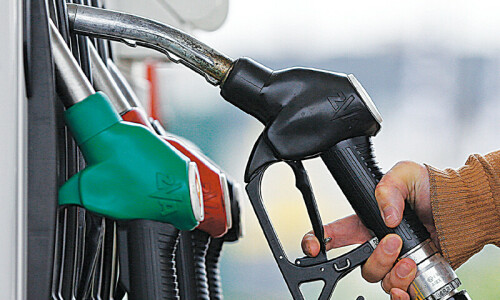ISLAMABAD: The prices of petrol and high-speed diesel (HSD) are estimated to increase by Rs1-4 per litre on Thursday (February 29) for the next fortnight due to minor adjustments in international prices, import premiums, and the exchange rate.
Informed sources said that the prices of both major petroleum products — petrol and HSD — moved slightly in both directions (10 to 50 cents per barrel) in the international market over the past fortnight, and the Pakistan State Oil (PSO) had to pay higher import premiums on petrol.
As a result, the price of petrol is estimated to be higher by Rs3-4 per litre than that of HSD by Rs1-1.5 per litre, depending on the final exchange rate calculation. The US dollar lost about 15 paise against the rupee on February 28. The prices of kerosene and light diesel oil are expected to remain stable.
For the purpose of price calculations, officials said the price of petrol had risen by about $0.5 per barrel to $90.78 from $89.20 per barrel over the last two weeks, while the HSD price inched down by about eight cents per barrel — to $101.05 from about $101.13. The rupee, on the other hand, generally remained stable. The premium paid by the PSO for securing product cargoes went up slightly for petrol to $10.45 per barrel this fortnight from $9.47 per barrel. It remained unchanged for HSD at $6.5 per barrel.
The government has already reached the Rs60 per litre petroleum levy — the maximum permissible limit under the law — on both petrol and HSD. The government had set a budget target to collect Rs869 billion as a petroleum levy on petroleum products during the current fiscal year under the commitments made with the International Monetary Fund.
It has already collected about Rs475bn in the first half (July-December) of the fiscal year, although the per-litre levy was gradually increased. The government is expected to mop up about Rs970bn by the end of the year, although the revised target has now been set at Rs920bn by end-June.
Petroleum and electricity prices have been the key drivers of the high inflation rate recorded at 27.5pc in January, as measured by the consumer price index.
Petrol is mostly used in private transport, small vehicles, rickshaws and two-wheelers and has a direct impacting the budgets of the middle- and lower-middle class.
On the other hand, HSD price is considered highly inflationary as it is mostly used in heavy transport vehicles, trains and agricultural engines like trucks, buses, tractors, tube wells and threshers. It particularly adds to the prices of vegetables and other eatables.
At present, the government is charging about Rs82 per litre tax on both petrol and HSD. Although general sales tax (GST) is zero on all petroleum products, the government is charging Rs60 per litre PDL on both products.
On the other hand, it is charging Rs50 per litre on high octane blending component and 95RON petrol. The government is also charging about Rs17-20 per litre customs duty on petrol and HSD. Petrol and HSD are major revenue spinners, with their sales of about 700,000 to 800,000 tonnes per month compared to just 10,000 tonnes of monthly demand for kerosene.
Published in Dawn, February 29th, 2024













































